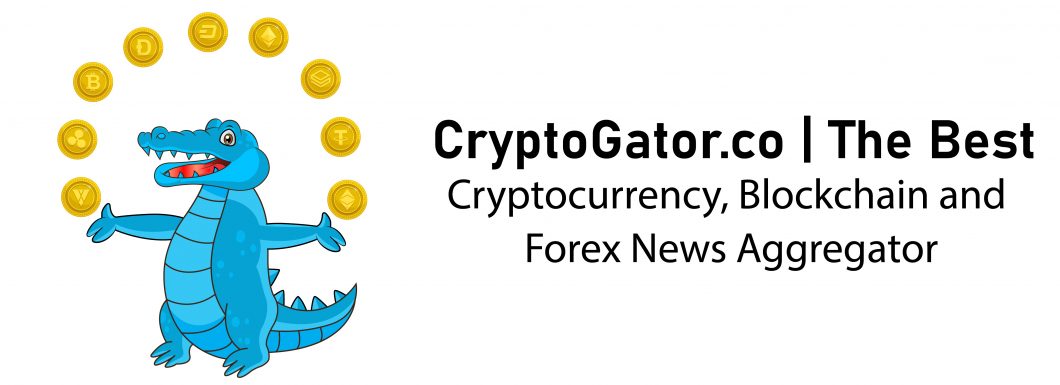<p>There was a point in late 2021 when what’s referred to as the metaverse was driving a lot of online discussions and affecting cryptocurrencies. This was around the time that Facebook (the parent company of the social media platform, rather than the social media platform itself) renamed itself Meta, and indicated that it would be focusing on metaverse development.</p><p> Crypto products related to the metaverse received an immediate but temporary boost, including tokens such as SAND and MANA, which connect to metaverse projects The Sandbox and Decentraland, respectively.</p><p> NFTs representing land and other assets in metaverse projects also, for a while, gained in value, and it became commonplace for new NFT collections to include imprecise references to metaverse ambitions in their project roadmaps.</p><p> Since then, mainstream interest in the metaverse has cooled off, and the prices of metaverse-related assets, both <a href=”https://www.financemagnates.com/terms/f/fungible/” target=”_blank” id=”2a0c5db9-2300-42ad-b87f-4c7e64b5deec_1″ class=”terms__main-term”>fungible</a> and non-fungible, have declined in line with bearish trends.</p><p> Meta shares have slumped sharply in price, and the prevailing attitude towards the metaverse concept has turned markedly skeptical. However, criticism of metaverse development often seems to misunderstand how the <a href=”https://www.financemagnates.com/tag/metaverse/” target=”_blank”>metaverse</a> relates to the web in its current state and overlooks development that continues to push forward.</p><p>The Metaverse Is Web3</p><p>The metaverse sounds like a nebulous idea, so it’s inevitable that there will be disagreement around what it will actually look like and consist of, and there is room for conflicting interpretations as to how it should function.</p><p>A misconception, though, is that the metaverse will be immediately, radically different from the ways that we currently interact online. In reality, the metaverse is simply the next evolution of the web, and as such, shifting into a metaverse should feel like a natural progression for those who already spend a lot of time in digital territory.</p><p> The other phrase that has entered the conversation recently is <a href=”https://www.financemagnates.com/tag/web3/” target=”_blank”>web3</a>, and this can in many situations be used as a direct synonym for the metaverse.</p><p>The notion implied by the web3 tag (an upgraded version of the web) makes intuitive sense, while making it more explicit that we are simply taking a logical step forward (from web2 to web3), rather than initiating something completely novel.</p><p> Looked at like this, as an emerging new iteration of what we already use every day, the metaverse no longer sounds fantastical, intimidating or undesirable.</p><p>Common Misconceptions</p><p>The science-fiction connotations that come with the word metaverse are understandable since the term was coined in the highly influential science-fiction novel Snow Crash, by Neil Stephenson.</p><p> Metaverse is a term that can evoke curiosity, but, on reflection, it may not be an optimal choice to gain mainstream favour. After all, Snow Crash tells a dystopian story, and the images elicited by the metaverse label could easily come across as negative or surreal.</p><p> There is an ideological element to this too, as metaverse development crosses over with <a href=”https://www.financemagnates.com/terms/b/blockchain/” target=”_blank” id=”be18ed01-45fc-4044-b447-06802a10dbcd_1″ class=”terms__secondary-term”>blockchain</a> technology and crypto. Although crypto is apolitical and can provide benefits across the party aisle, it has always slotted in most easily with libertarian sympathies, and the <a href=”https://www.financemagnates.com/tag/crypto/” target=”_blank”>crypto</a> narrative puts freedom at its core.</p><p>To those whose primary concerns include the safeguarding of individual rights, and divergence from overly-intrusive authorities, the metaverse can easily be spun into what looks like a high-tech trap.</p><p> By this reckoning, the metaverse is akin to the dystopian control system depicted in the sci-fi thriller, The Matrix, and strikes a stark contrast to Bitcoin’s orange-pilled promises of financial freedom, leading ultimately to societal freedom.</p><p> This Matrix-like imagining of future developments envisions metaverse participants hooked up to robot-like VR headsets, disengaged from reality and roaming a second-rate, Zuckerberg-administered imitation of life, in which privacy and natural connections cannot exist.</p><p>The Reality Is Less Radical</p><p>A more down-to-earth reading of metaverse development is that to get an indication of what the metaverse, or web3, might become, rather than reading Snow Crash or watching The Matrix, the best starting point is simply our current web experience.</p><p> The web is a set of networks and information flows that have become so advanced that some people can now, should they wish to, conduct the majority of their business and commerce entirely over the internet, along with some social activity.</p><p>Certainly, not everyone would choose to do that, particularly the social aspect, but the facilities exist, and continue to evolve.</p><p> The metaverse is similar, but it upgrades the experience. After all, if a significant amount of what we used to do in real life can now be done virtually, then the virtual world should, as far as possible, follow real-life standards.</p><p> That means not being overly reliant on centralized authorities, being able to independently transact and hold digital property (which can also be bound up with physical property), and doing all this in a persistent online environment, meaning a virtual landscape that continues to record history, regardless of whether or not you are checked in and active.</p><p>This version of the metaverse operates on blockchains, and cryptocurrencies are essential, but it doesn’t require either VR goggles or a prolonged detachment from reality.</p><p>In fact, if web3 works efficiently (as we should expect from a tech upgrade), you should be able to complete online tasks faster and more easily than you do now, which can then equate to spending less time staring at screens.</p><p> This is not to say that there aren’t well-funded development teams working on VR interfaces, or that total immersion cannot bring benefits and innovations of its own. However, unless you really are discussing science fiction classics, these lines of research don’t define a metaverse, and need not be a requirement when it comes to utilizing web3.</p>
This article was written by Sam White at www.financemagnates.com.



